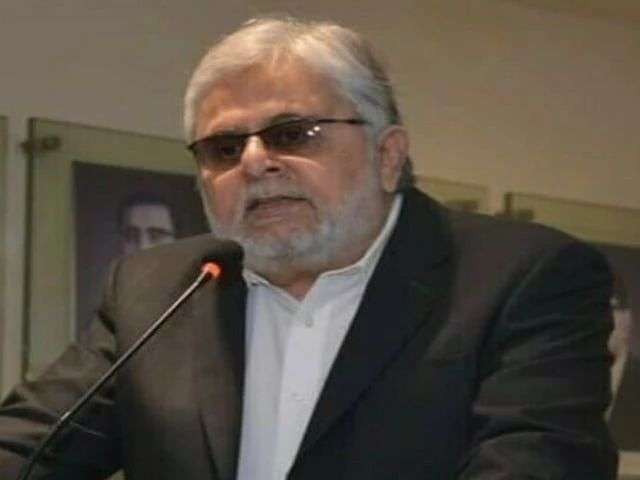Businessmen air concern over budget measures
Chambers, trade bodies call for tax base expansion, raise alarm over unrealistic targets

Reacting to the federal budget for fiscal year 2025-26, business leaders and industrialists raised concerns, citing increased burden on taxpayers and the lack of incentives for economic growth.
Businessmen Group (BMG) Chairman Zubair Motiwala, while calling it a "camouflage budget," expressed serious reservations about its unrealistic targets and the absence of any meaningful relief for the business community or the common man.
The budget includes various announcements related to digitalisation and promoting the cashless economy. These measures alone are insufficient for stimulating exports or driving industrialisation, which are critical for sustainable economic growth, he stated.
Addressing a press conference at the Karachi Chamber of Commerce and Industry (KCCI) after the finance minister's budget speech on Tuesday, he criticised the government for setting overly ambitious goals despite the country's poor economic performance in the previous fiscal year, during which all major targets, including GDP growth and fiscal consolidation, were missed.
Motiwala questioned the rationale behind increasing targets without providing any practical explanation regarding how these would be achieved, especially in a fragile economic environment dominated by uncertainty, high inflation and the IMF-imposed constraints.
He remarked that for achieving the elevated tax collection target, the government seems to be relying largely on extracting more revenue from the existing pool of compliant taxpayers, rather than expanding the tax base.
He feared that instead of introducing meaningful reforms to bring untaxed sectors into the fold, the budget would result in increased discretionary powers for tax officials, burdening documented businesses and discouraging the economic activity. "This strategy of squeezing the formal sector could result in contraction of economic output rather than expanding it."
The Overseas Investors Chamber of Commerce and Industry (OICCI) has expressed disappointment over the government's limited progress in addressing inequitable corporate tax rates in the recent budget. While a marginal reduction in super tax was acknowledged, the OICCI reiterated the need for a comprehensive overhaul of tax structures to enhance Pakistan's competitiveness and attract foreign investment.
The chamber noted the absence of a meaningful reduction in government expenditure, which could have helped narrow the budget deficit. Fiscal discipline remains critical to ensuring macroeconomic stability. The OICCI urged the government to prioritise expenditure rationalisation in its budgetary measures.
It regretted the missed opportunity to broaden the tax base, particularly the absence of a concrete strategy to document Pakistan's Rs9 trillion cash-based informal economy – a critical measure for meaningful revenue enhancement and economic formalisation that the chamber had consistently advocated for.
Federal B Area Association of Trade and Industry President Shaikh Muhammad Tehseen commented that the federal government's announcement of the initiative to promote SMEs is a welcome move for owners of small and medium-sized businesses.
He urged the government to engage relevant stakeholders and incorporate their recommendations to ensure the success of the proposed business scheme, support the export-based sector and generate jobs for the youth.
According to the budget speech, on the directives of the PM, the Small and Medium Enterprises Development Authority (Smeda) has prepared a three-year business plan for 2024-27, which includes increasing SME financing, enhancing exports, building inter-industry linkages and promoting female inclusion in business.
The speech also mentioned the success of the SME Risk Coverage Scheme, which generated more than Rs311 billion in assistance for over 95,000 SMEs by May 2025. The government's target is to increase SME financing to Rs1,100 billion by 2028.
"The government should focus on reducing the cost of production to ensure benefits for industries, particularly through lower interest rates, utility charges and petroleum product prices, which will support the struggling SME units and attract both local and foreign investors to establish SMEs," Tehseen said.
SITE Association of Industry (SAI) President Ahmed Azeem Alvi stressed the need for clearer policies, faster tax refunds and digital reforms to support exporters and industries.
He said the government has recognised the need for relief within the Customs sector and intends to implement reforms. However, he noted that the full impact of these measures will only be clear once detailed budget documents are released.





1733130350-0/Untitled-design-(76)1733130350-0-208x130.webp)













COMMENTS
Comments are moderated and generally will be posted if they are on-topic and not abusive.
For more information, please see our Comments FAQ